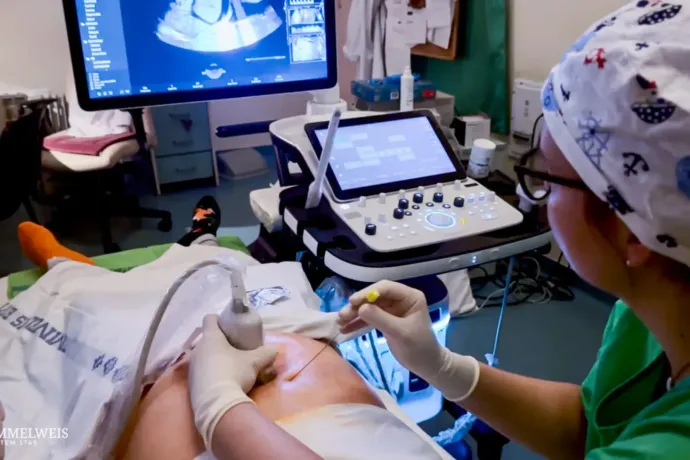A first in Hungary: foetus anesthetised in womb to receive blood transfusion

An in utero procedure involving the anaesthesia of a foetus was performed at the Department of Obstetrics and Gynaecology of Semmelweis University in Budapest, the institution's official website reported. The procedure helped avoid an extreme premature birth of the baby concerned. The first successful procedure has been followed by four more since January.
The first to undergo the treatment was Borbála, who ended up being born at 32 weeks' gestation, weighing 1,900 grams. She is now two months old, gaining weight and developing well, and her mother describes her as a strong baby.
"The mother's body was producing antibodies against the baby's blood type, and by the 28th week, the 1200-gram foetus was so severely anaemic that only a blood transfusion could have prevented an immediate C- section. Although it is also possible to give blood to the foetus through the umbilical cord – a procedure which has been successfully used several times in Pécs – this procedure could not be used in Borbála's case because of the location of the placenta. There was only one solution, and that was to administer the blood directly into the abdominal vein of the foetus," said Zsófia Benkő, an adjunct professor at the clinic, who had previously spent two years in London mastering the technique.
The first step was to help the foetus into the right position in the womb and then, using a special needle, inject the cocktail of anaesthetic and painkilling drugs into its thigh. It was after this that the blood transfusion procedure itself could begin, which
involved pricking a vein of 5-6 millimetres in diameter located in the fetal liver to introduce the blood product into the foetus' circulation.
Speaking to RTL about the operation, Benkő also said that the whole procedure was rehearsed several times beforehand, just like in a play: who would do what, where each team member would be standing, what equipment would be used, what would be the most efficient.
According to assistant professor Petra Merkely, for such a tiny foetus, the extra month spent in the womb can be life-saving. “Her whole life will be determined by those weeks she was able to continue to develop in the womb.”
The Magzati Medicina Unit treats expectant women from all over the country for whose foetuses this unique solution could prove life-saving.
For more quick, accurate and impartial news from and about Hungary, subscribe to the Telex English newsletter!